-
About
- About Listly
- Community & Support
- Howto
- Chrome Extension
- Bookmarklet
- WordPress Plugin
- Listly Premium
- Privacy
- Terms
- DMCA Copyright
- © 2010-2025 Boomy Labs


 John Thibault
John Thibault
Listly by John Thibault
Regular citizens who believe they can take action, influence policy and change laws. In many cases they have. Some are still working on it. Either way they are an inspiration to us all and a reminder of how important democracy and citizen engagement are.
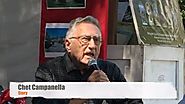
San Jose resident Chet Campanella has two bills in Congress and is helping his community regarding the mistreatment of Italian-Americans during World War II.
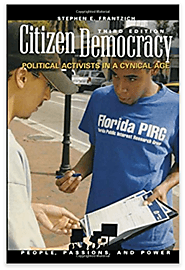
Apathy and antipathy toward politics are epidemic. Citizen Democracy provides the antidote.
Through a series of nineteen carefully chosen vignettes, Stephen Frantzich portrays citizens from every walk of life—rich and poor, old and young, black and white, male and female, left and right, famous and obscure—as they choose to become involved in politics at a level to which readers can relate.
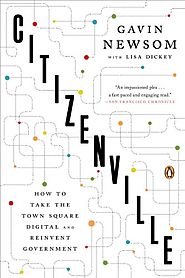
A rallying cry for revolutionizing democracy in the digital age, Citizenville reveals how ordinary Americans can reshape their government for the better. Gavin Newsom, the lieutenant governor of California, argues that today’s government is stuck in the last century while—in both the private sector and our personal lives—absolutely everything else has changed.
The explosion of social media, the evolution of Internet commerce, the ubiquity of smart phones that can access all the world’s information; in the face of these extraordinary advances, our government appears increasingly irrelevant and out of touch.
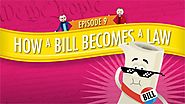
Oh my, Craig has his work cut out for him this week. The process of how a bill becomes a law can be pretty complex, fraught with potential bill-death at ever...
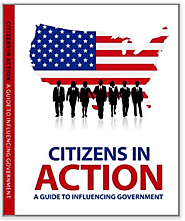
Ever wanted to make a difference for your world, for your country or for your neighborhood but weren't sure how to get started?
Feel a little intimidated at the idea of contacting an elected leader whether your city council member, your state legislator or a Member of Congress? Now, here's a way to move forward.
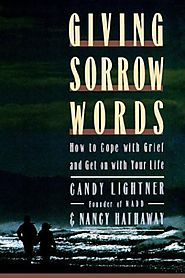
The founder of MADD (Mothers Against Drunk Driving), who lost her thirteen-year-old daughter to a drunk driver, shares her own and others' stories in a unique and sensitive approach to a subject that everyone must face at least once in a lifetime.
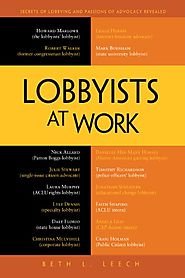
Perceived wisdom has it that lobbyists run the American government on behalf of moneyed interests.
But what makes lobbyists run, and how do they induce legislators and bureaucrats to do their bidding? These are questions for which even the harshest critics lack satisfying answers.
Lobbyists at Work explores what lobbyists really do and why. It goes behind the scenes and brings back in-depth interviews with fifteen political advocates chosen to represent the breadth and diversity of the lobbying profession.
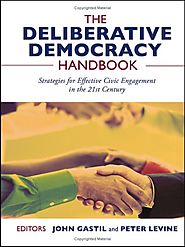
The Deliberative Democracy Handbook is a terrific resource for democratic practitioners and theorists alike. It combines rich case material from many cities and types of institutional settings with careful reflection on core principles. It generates hope for a renewed democracy, tempered with critical scholarship and political realism.
Most important, this handbook opens a spacious window on the innovativeness of citizens in the U.S. (and around the world) and shows how the varied practices of deliberative democracy are part of a larger civic renewal movement.
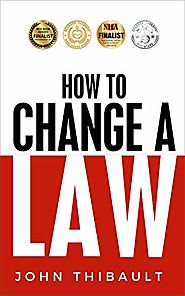
How To Change A Law offers insight, actionable tools, and strategies that will lead you to becoming an active Citizen Legislator who realizes that your participation in public policy matters.
This book is a DIY do-it-yourself manual for voters, small business owners, lobbyists, and policy advocates who want to take political action, influence leaders and change laws.
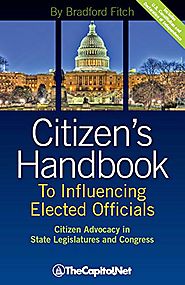
Practical guidance how to prepare for and meet with elected officials and staff, how to write effective letters and emails to elected officials, strategies for influencing legislators face-to-face, best practices for communicating with Congress and state legislatures, and how to write persuasive "letters to the editor".
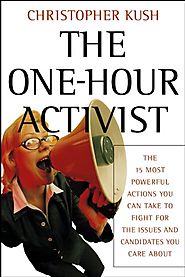
No matter what your political persuasion, The One-Hour Activist is your guide to influencing lawmakers, candidates, and reporters. The One-Hour Activist reveals fifteen powerful, proven grassroots actions that persuade lawmakers and candidates to see things your way.
Each action is designed to grab the attention of your representatives and build relationships that serve your issues over the long run. And each action takes less than an hour to complete, so you can make a difference without giving up your life! The One-Hour Activist is packed with insider advice from elected officials, professional organizers, lobbyists, and journalists who share state-of-the-art tips for getting your message across.
Real-life examples of effective letters, e-mail, phone calls, public testimony, and news story pitches from concerned citizens just like you illustrate the actions.
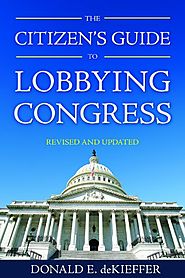
Individuals and grassroots organizations interested in becoming involved in petitioning their government will discover essential information on the techniques and laws to lobbying in this clear and enlightening guide.
New lobbyists will learn how to best craft and direct their messages so that their concerns will be heard, make congressional contacts, get the most out of letter-writing campaigns, generate press, give campaign contributions, and even get invited to testify before congressional committees.
This resource details the most recent lobbying laws, including the Federal Election Campaign Act amended in 2002, as well as a list of appropriate gifts to give to a member of Congress or their staff. This revised edition contains updated chapters and resources that will ensure that neophyte lobbyists will have the most up-to-date information when lobbying their government.
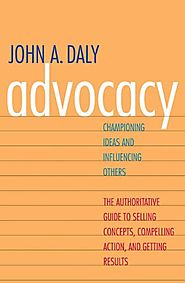
When a group of people gather together to generate ideas for solving a problem or achieving a goal, sometimes the best ideas are passed over. Worse, a problematic suggestion with far less likelihood of success may be selected instead. Why would a group dismiss an option that would be more effective?
Leadership and communications expert John Daly has a straightforward answer: it wasn't sold to them as well. If the best idea is yours, how can you increase the chances that it gains the support of the group? In Advocacy: Championing Ideas and Influencing Others, Daly explains in full detail how to transform ideas into practice.
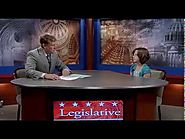
Rep. Ryan Aument interviews the most recent winner of his There Ought to be a Law Contest, Paige Flinchbaugh. [From 2005]
A 10-year-old girl works with a Pennsylvania legislator and her teacher and wins a contest that passes a law that affects students at her school. Citizen democracy in action.
An eyewitness account of Jessie Haver Butler, a suffragist on the front lines of the women’s movement in 1920—with Alice Paul and Carrie Chapman Catt. During her long life devoted to women’s rights, Jessie lectured alongside George Bernard Shaw, Eleanor Roosevelt, Gloria Steinem and Marlo Thomas.
